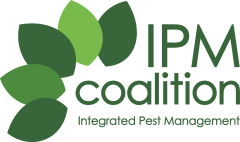The Producer has a plan to phase out Pesticides defined as…
Coalition status
BCI have plan to phase out
Fairtrade Red
This list contains 207 pesticides. The list is valid as of January 2018.
Prohibited pesticides that must not be used on Fairtrade products under any…
FSC restricted HHPsChemical pesticide presenting one out of three of the following hazards: acute toxicity, chronic toxicity and environmental toxicity.
GCP-Phase-Out 2026Use of pesticides in the Phase-out List are reduced through use of Integrated Pest Management and phased out by 2030, if feasible. This includes…
Rainforest Exception, Rainforest prohibited PesticidesSAN HHP: phase-out, SAN ExceptionThe SAN List of Highly Hazardous Pesticides consists of 230 pesticides:
SAN HHP Pesticides are classified as Highly Hazardous Pesticides according to…, Within its 2018 Sustainable Agriculture Framework and related projects, SAN promotes the elimination or phase-out of SAN HHPs without any general…
UEBT ProhibitedThe use of Prohibited Agrochemicals is prohibited for certified, prioritised and verified ingredients, because they are considered Highly Hazardous…
UTZ ProhibitedA pesticide all uses of which have been prohibited by final regulatory action, in order to protect human health or the environment.
Details
Type: Pesticide
Use: Fungicide
Example applications: Cereals;Bananas;Tea;Vegetables;Ornamentals
Example pests controlled: Powdery mildew;Rust;Leaf blotch;Eyespot
Mode of action: Systemic with eradicant action, absorbed by leaves and shoots, some protectant properties. Disrupts membrane function.
Source: PPDB
Toxicty
Identifiers
GHS safety labels
About Globally Harmonized System of Classification and Labelling of Chemicals (GHS)
From Wikipedia: The Globally Harmonized System of Classification and Labelling of Chemicals (GHS) is an internationally agreed-upon standard managed by the United Nations that was set up to replace the assortment of hazardous material classification and labelling schemes previously used around the world. Core elements of the GHS include standardized hazard testing criteria, universal warning pictograms, and harmonized safety data sheets which provide users of dangerous goods with a host of information. The system acts as a complement to the UN Numbered system of regulated hazardous material transport. Implementation is managed through the UN Secretariat. Although adoption has taken time, as of 2017, the system has been enacted to significant extents in most major countries of the world.[1] This includes the European Union, which has implemented the United Nations' GHS into EU law as the CLP Regulation, and United States Occupational Safety and Health Administration standards.
